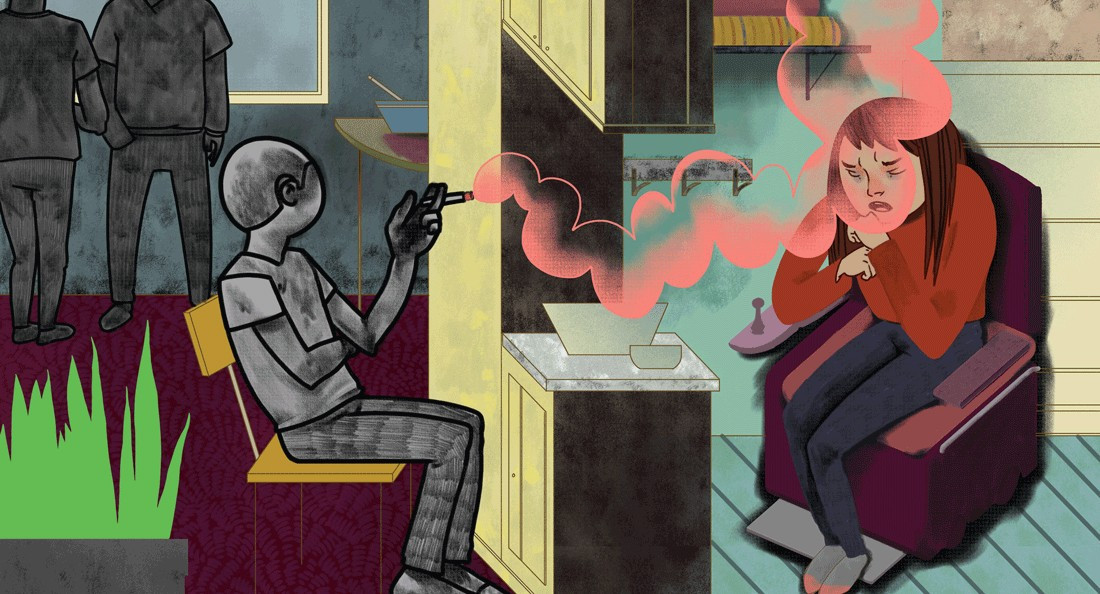Crystal Clear
Struggling to celebrate
With the holiday season passed and spring on its way, many of us have gone to family get-togethers, and many of us have some coming up.
Family events and holidays can be stressful for anyone, but for people with a disability or chronic illness, they can be even more difficult, because a lot of family members and friends just don’t understand what comes with being disabled or chronically ill.
That’s not saying they don’t care – they just don’t live with it every day. They don’t understand that people with chronic pain are easily exhausted from trying to manage the pain and have to prioritize their activities. Or that a person who is on chemotherapy has a weakened immune system and shouldn’t be around large groups of people or people who have a cold.
The “obligation” to go out when they are already tired, not feeling well or fatigue easily makes family get-togethers more stressful for chronically ill and disabled people. I say “obligation” in quotations, because most families aren’t going to get mad if the disabled or chronically ill person is unable to go, but they generally feel guilty cancelling on people.
I’m disabled and chronically ill myself, and I bail on plans a lot because of my health. I have had to learn to not feel guilty about doing what’s best for my body, and it’s not easy.
The second thing that makes these occasions difficult is food – a feast of delicious food is central to many family gatherings. But what happens if you are a person who can’t eat, has food allergies or is on a special diet?
Celiac disease causes an immune reaction to eating gluten, a protein found in wheat, barley and rye. This reaction damages a person’s small intestine lining and prevents absorption of some nutrients (malabsorption). The intestinal damage often causes diarrhea, fatigue, weight loss, bloating and anemia, and can lead to serious complications.
So people with celiac can forget about eating buns, pies, cookies, brownies, pastas and casseroles.
Patients with fibromyalgia can experience disabling fatigue, aching muscles, fever, headache, muscle spasms, sensitivity to light and heat, sleep disturbances, swollen glands, upper respiratory tract infections, difficulty concentrating, fever, irritability, loss of appetite and depression. Because of these symptoms, they often don’t eat very much.
“Sometimes I eat totally fine, and then other times, I can go days without touching food. Then there’s the days where I’m starving, but the thought or sight of food makes me nauseous,” my friend Amber Smith, a young woman who lives with fibromyalgia, says.
Yet if chronically ill or disabled people don’t eat at these family gatherings, they could get comments like “why aren’t you eating?” Or “that’s all you’re going to eat?” There can be a pressure and almost an obligation to eat, but then there are also consequences for eating, such as throwing up, stomach pain or diarrhea.
Family gatherings can also be more stressful when family members are smokers. Any person who has a respiratory condition should not be around second-hand smoke, whether they have asthma, cystic fibrosis, chronic lung disease or are trached and ventilated like me.
However, if the event is at someone’s house, most family members won’t smoke outside or get annoyed when I ask them to, because they don’t understand. Their reasoning is if they aren’t smoking right beside someone who has poor lung condition, that’s good enough, but it’s not.
Many houses are also not wheelchair accessible, so if you’re a person in a wheelchair like me, it’s not really fair to have to come out of the wheelchair and be immobile.
All in all, family gatherings can be stressful, but they can still be enjoyable. Try to be mindful that if a person isn’t eating anything or much at all, there’s probably a reason.
And for those with illnesses, remember that our families aren’t trying to be rude or uncompassionate; it could simply be that they don’t understand what’s going on. So explain it if you’re comfortable with that – that’s what I do when people don’t understand something about my health, and it can be helpful.
Crystal Rondeau is a rock music and tattoo-loving young woman who lives with a physical disability and chronic illness. Her main goal in life is to break barriers and destroy the stigmas that come with being disabled and ill. She does this by speaking in schools, volunteering and being very open and uncensored about her life.
Published in Volume 72, Number 21 of The Uniter (March 15, 2018)







